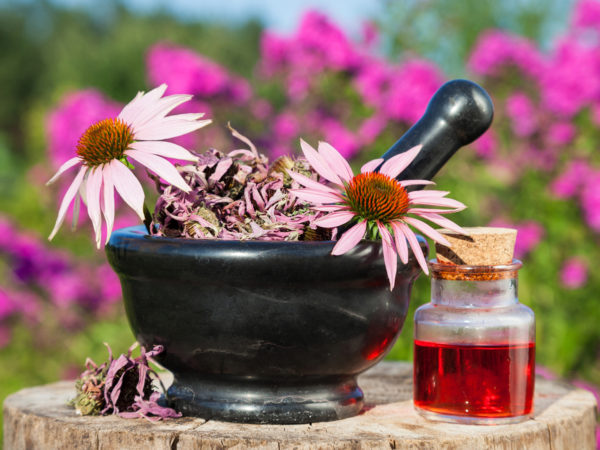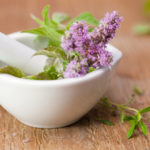Echinacea: An Immune System Threat?
My doctor told me that long-term use of echinacea over-stimulates the immune system. What is your opinion? What does it mean to over-stimulate the immune system?
Andrew Weil, M.D. | September 2, 2003

Echinacea, from the dried root and leaves of the purple coneflower, Echinacea purpurea and related species found in many North American gardens, stimulates the immune system. Many people take it to prevent and treat common colds and other minor infections. The recommended adult dose is two capsules of freeze-dried extract four times a day or one teaspoon of the tincture in a little warm water at the same frequency. People also take echinacea to enhance immunity in the absence of infection – for this purpose, half the usual dose is sufficient.
I’m not aware of any research showing that long-term use of echinacea over-stimulates the immune system. Indeed, I’ve found no evidence to support the opposing widespread belief that, taken long-term, echinacea loses its effectiveness. (For that matter, I’ve seen no evidence to support using it to protect against colds.) Its active components are quite similar to those of other immune-boosting plants (like the Chinese herb Astragalus membranaceous) that people take on a long-term basis. While I don’t recommend its long-term use, I don’t think taking echinacea regularly is likely to pose a problem for most people.
In theory, an “over-stimulated” immune system could cause allergies or autoimmunity. To be prudent, I advise people with diseases like rheumatoid arthritis or lupus to avoid long-term use of any of the immune-enhancing botanicals. But I think it’s perfectly fine for them to take echinacea or astragalus short-term (up to 10 days or so) to treat colds and other minor infections.
Andrew Weil, M.D.










